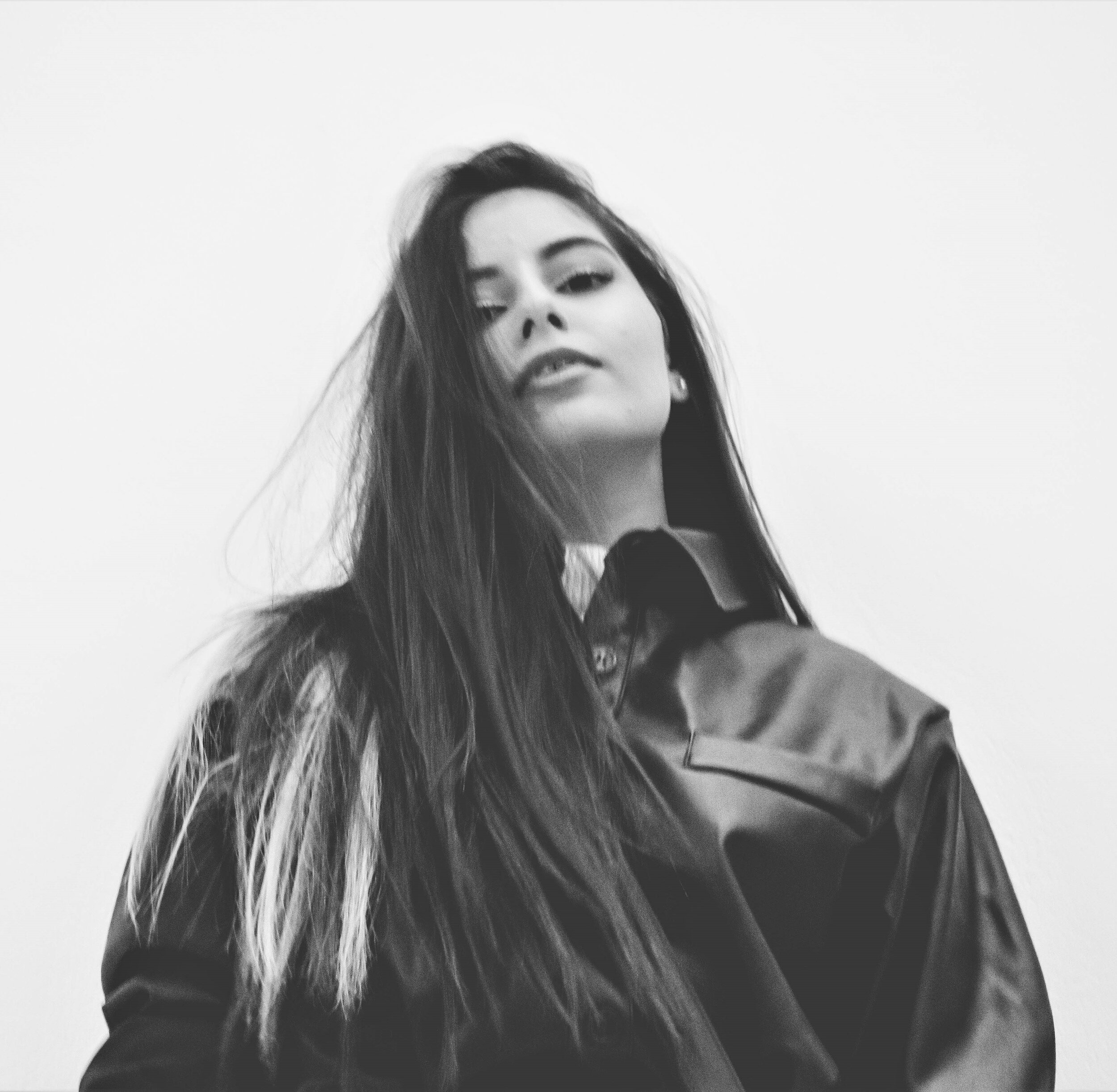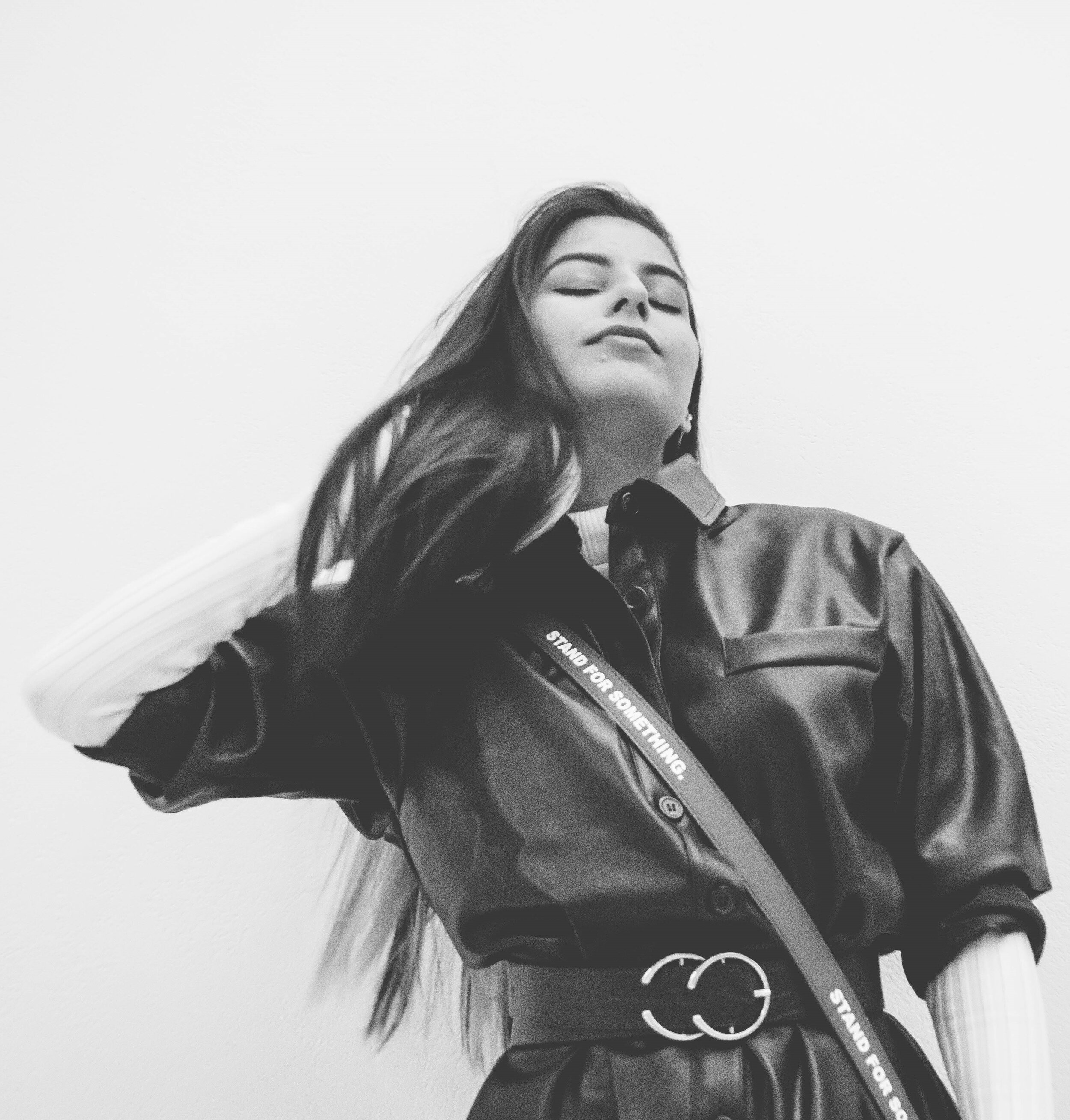Jana Ally
What’s your full name?
My name is Jana Mohamed Ameer Ally (I know my middle names are masculine but it’s Arab tradition to take your father’s name for your middle name).
Where were you born/brought up?
I’m London born and bred with an extremely short intermission in New Jersey, USA as a little one.
What do you do for a living?
I’ve recently graduated from London College of Fashion as a designer. Since leaving university I’ve been working on projects that allow me talk about race and identity.
What’s your ethnicity?
I am proudly half Indo-Caribbean (Father’s side) & half Egyptian with Turkish decent (Mother’s side).
How did your mum and dad meet?
Well… not the most romantic story but a mutual friend set up an introduction at my mother’s parents’ (my grandparents’) house and when my mum heard, she was slightly miffed to say the least but as she brushed past him on her way out she looked up and thought she might stay a while…
How old were you when you became conscious that people saw you differently? What impact did that have on you?
As soon as I started school I knew that there wasn’t a category for me. The age you start making friends is when you start to discover your similarities and differences, I simply couldn’t relate. Living in multi-cultural Brent, a lot of people LOOKED like me but when it came down to cultural similarities I was never enough of any race to be able to relate. Kids didn’t really get it (which is totally understandable, at that age I didn’t even get it). I look Asian with a slightly lighter skin complexion, my grandmother has a Caribbean accent, my mother is Caucasian looking but spoke Arabic. I am mixed, mixed and then mixed again… and the funny thing is I grew up letting other people tell ME what I was because I didn’t even know who I was. The feeling of not being able to relate made me feel really isolated to be honest. As much as being unique is great, it’s human nature to want to conform. I never had a group of friends I perfectly fit into. That was until I got to high school and my group was the most multicultural group on the playground! From Ukrainian, Bayesian, English to Asian, West Indian, African. I truly felt at home!
Describe your most memorable moments when you were made aware of being mixed race.
Being mixed I’ve found that to other people I will never be Asian enough, West Indian enough, Arab enough or Turkish enough. I will never forget when people tell me that I am not from where I am from. I identify as Indo-Guyanese and Egyptian…one of the main reasons I don’t say Asian is because it was the Asian community that made me feel like I wasn’t one of them. And much like an Afro-Caribbean doesn’t identify as African, there is too much history in my ancestry for me not to be proud of my Caribbean-ness.
Do you feel your parents prepared you for life as a mixed race person?
We never had discussions on race and identity because they were of mixed origin too. Race in their eyes has never been a stigma but they have had to shelter me and my siblings from discrimination. I have three other siblings and from my dad being a mid-tone shade of brown and my mum being an olive tone of white we each fell somewhere in between with different shades of brown, tan and white. When moving to Princeton, New Jersey, an affluent area of the state, we soon realised a mixed family in the 90’s was not normal in this neighborhood. As my parents noticed a distinct difference between the way Princeton treated the darker side of our then five figure family, they soon understood that London was where they belonged.
What ignorant comments have you heard about being mixed-race that really rile you?
“mixed-race is only black and white”
“So if your dad is from Guyana, that makes him black, right?”
“You’re from Ghana?”
“How can you be from the Caribbean? You look Asian…”
What do you wish people who aren’t mixed-race understood?
I think in recent days it’s been fetishised to be something desired but it’s hard. Feeling like you’re never enough, being put into boxes by people that have no clue about your ancestry and wanting desperately to be accepted by both sides.
Do you think mixed race people/families are well represented in the media?
I personally only see one shade of mixed race in the media. This is a main reason why I’ve started talking about race and identity, nobody knows of my heritage because it’s just not represented. If the spectrum of being “mixed race” isn’t shown, then I don’t see it getting easier for people to understand.
Back in the late 19th century/early 20th century being mixed race held a stigma, as it was clear proof of interracial relations which was seen as an affront to society’s morals. Do you think it’s easier nowadays to be mixed race or is it more that racism has become subtler?
I feel like it’s a bit of both! On one side you have the fetish of a mixed race person and the idea that they are something exotic and special and then on the other side you’ll never be enough of one race so you’ll never be fully accepted which opens the door for racism.
Is being mixed race a burden or a blessing for you?
It can be lonely for sure, no one will ever fully understand my experience apart from maybe my siblings but I must say being mixed is BEAUTIFUL. All that heritage in a beautiful blend of unique genes, that is completely unlike any other.
Have you felt a struggle with your identity? If so, how did you deal with it and if you are now at peace with who you are, how did you come to a place of self-acceptance?
I’ve gone through a crazy journey struggling with my identity! When everyone saw me as Asian based on my looks I started to call myself Asian until Asians didn’t accept me based on my culture. Then I steered more towards my Egyptian side until other Arabs sussed out that I don’t speak Arabic and don’t have the traditional Arab quirks. Finally, I’ve come to an understanding that I am an amazing hybrid of Indo-Guyanese and Egyptian without being culturally bound to one place. I have the freedom of being in two separate spaces or blending the two for a unique experience that only a few would understand. I have the power to educate and relate to more than just one group.
What advice would you give yourself?
It’s okay to not understand, to try find your place where you fit in and to even feel a bit odd…because it’s that very journey of isolation and being misunderstood that will help you to understand every strand of your DNA. It’s that struggle that makes your heritage even more important, it tells your story and allows you to continue the story telling for other little girls just like you. Be proud of every single part of you and don’t let other people tell you who you are because you knew all along you just didn’t quite understand. (and don’t get too mad at people’s ignorance…sometimes they just don’t know! Educate them!)
Is there anything more you’d like to say?
I’d like to take this opportunity to thank this platform! For so long I really struggled to be proud of my mixed-ness because I felt like I had to pretend to fit in but this platform allows us all to embrace our cocktail of heritages and to let us know that no experience is the wrong experience. Thank you for allowing me to keep telling my story.





